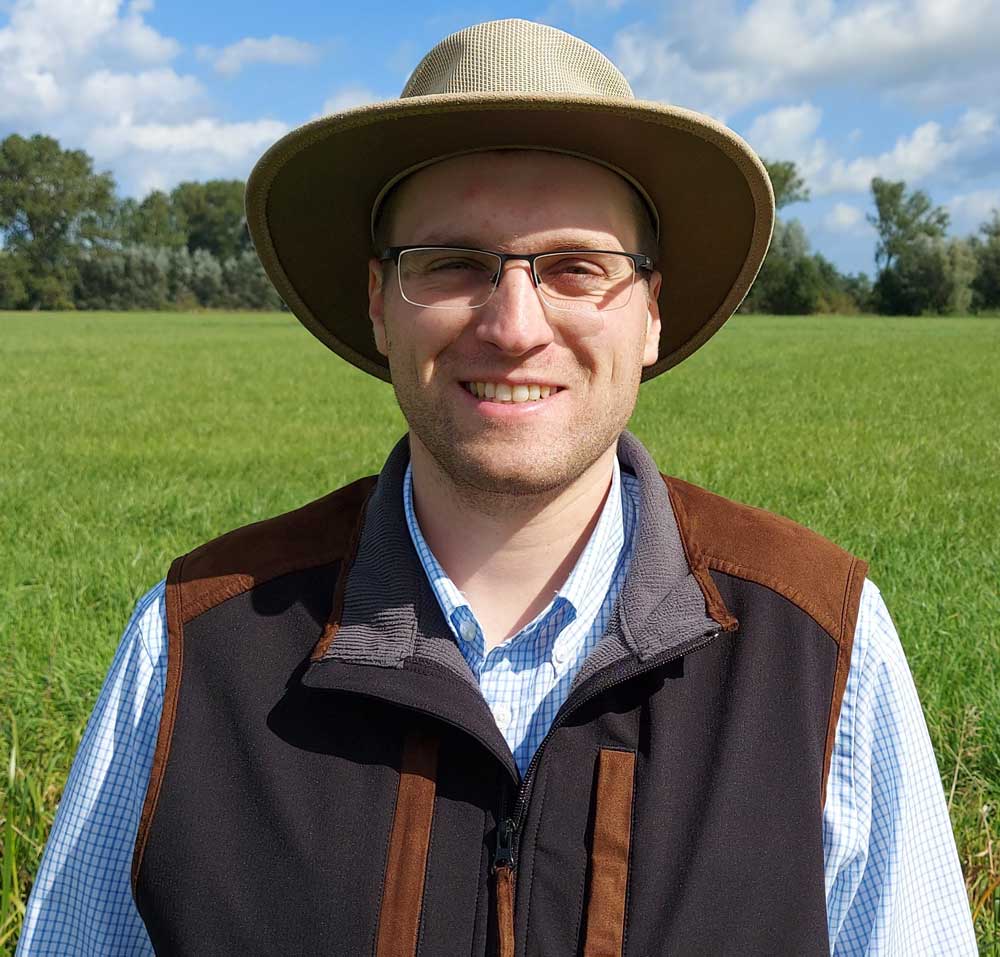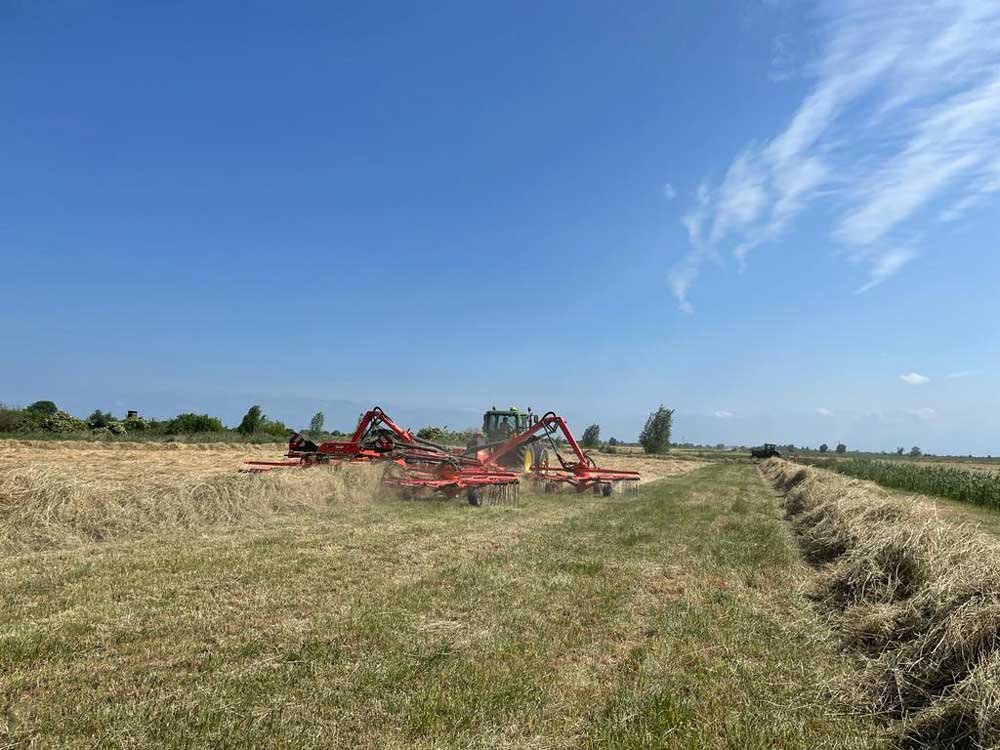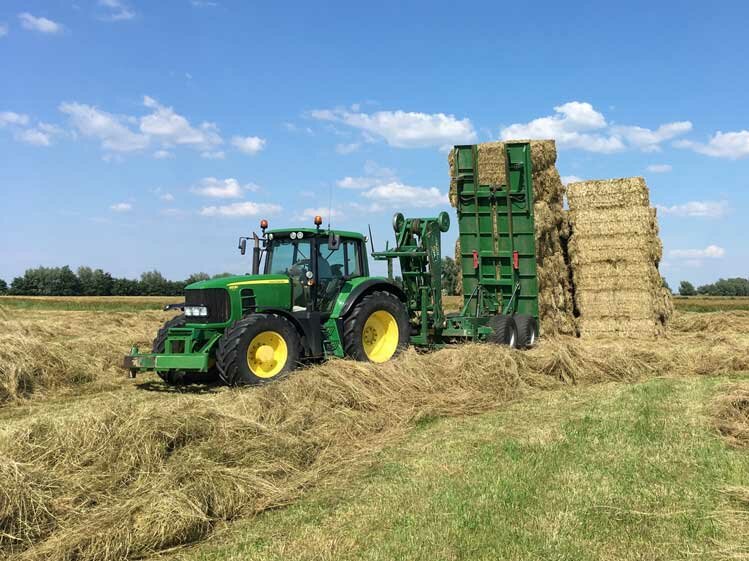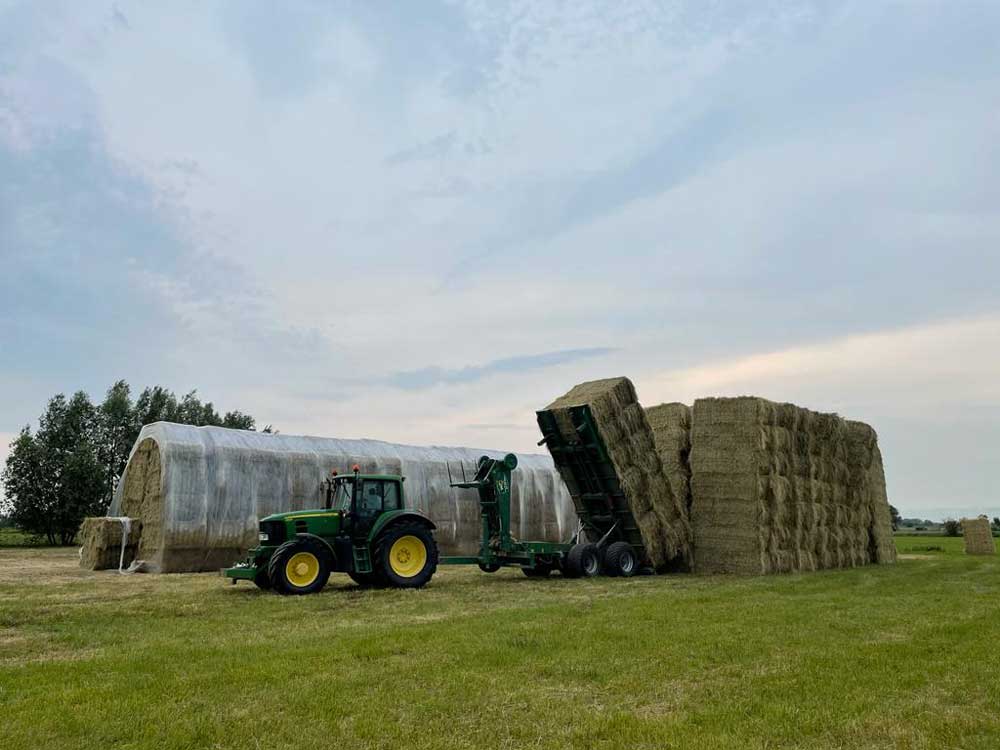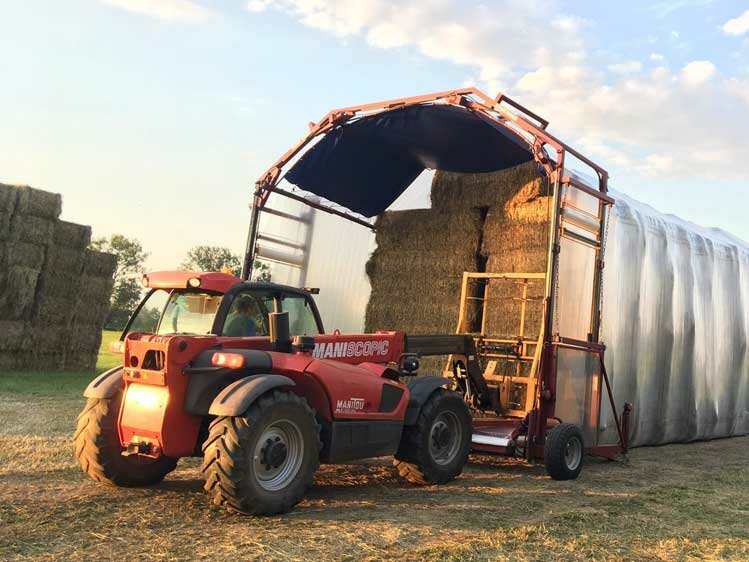Mateusz Ciasnocha: Regenerative farming in Poland
Interview by Erminia Ciarleglio, DLG
Mateusz Ciasnocha from Poland has been a member of the DLG since 2017. He is an active farmer and Executive Director of European Carbon Farmers. His mission is to preserve farmers' income by putting them at the centre of climate change mitigation and adaptation efforts.
Mr. Ciasnocha, your mission is very ambitious. How do you motivate farmers to switch from conventional to regenerative farming?
My approach for living daily my mission – which is putting farmers at the center of climate change mitigation and adaptation efforts in a profitable way – is rooted in three areas, which reinforce each other. Those are:
- Having a first-hand, relevant farming experience. Our family farm (more on the farm is available here: https://www.arc2020.eu/letter-from-the-farm-welcome-to-ciasnocha-family-farm/) went through the transformation from conventional to regenerative agriculture in a profitable way itself and hence we have the credibility, as well as insights as to what it takes.
- Developing a proactive and positive vision, which we as the Ciasnocha Family Farms, but also the European Carbon Farmers – a business spin out of the Ciasnocha Family Farms (https://europeancarbonfarmers.com/en/home/) – are proposing: a vision for net zero and nature positive agriculture with farmer at the center presented in the recent document created in both Polish and English.
- Being able to articulate a very clear and simple intervention that has catalytic impact on the system farmers are part of. In this regard, we are proposing a fundamental redesign of the CAP (Common Agricultural Policy of the EU) away from action-based to result-based payments focused on soil carbon maintenance and enhancement.
How do you manage your 700 ha family farm?
Our family farm of 700 ha is producing the highest-quality hay for animal feed, horse feed in particular, for over 15 years now.
We like to say that we regenerative farmers, as we are stewarding our ecosystem. In other words, we maintain and enhance the ecosystem cycles and services that are present in our ecosystem. We do so by switching from management practices that were not best-suited to our particular location, ploughing in particular, to practices that are perfectly suited to our reality, which – in our case – is the management of permanent grassland.
We have made this switch in 2008 and since our farm is a very low-input and low-cost operation with two cuts of hay per year. The first one starting in the second part of June and the second one stating in the second part of August.
All our farm activities are presented in this vide from Harvest Time 2021: https://www.youtube.com/watch?v=CUbTyfDY6ns.
What are the main challenges that agriculture has to face in northern Poland?
To my opinion, the greatest challenges agriculture in northern Poland is facing are not too different from the challenges agriculture is facing in other parts of Europe, which is how do you continue making money, while simultaneously stewarding for the ecosystem. Our farm’s experience tells us that this is not possible for long-term in conventional agriculture. Hence, we have transitioned our family farm. Furthermore, building on those experiences, we have started the European Carbon Farms to support other farmers in Poland and the EU with this transition, as well as represent missing farmers’ voices at the regulatory level.
You support the development of the two most pivotal sectors of the global economy: agriculture and energy with a particular focus on African projects. What are the focal points?
The key theme of my work centers on injustices and tackling those head on. Just like on individual farm level there are injustices, which I am trying to address through my work – an example of those is farmers’ bargaining power with input suppliers, which is very low – so I am passionate about tackling injustices at the global level. Hence, my passion for Africa.
Right now the major platform, I am living this mission through is the Farm of Francesco (https://www.francescofarm.com/ & https://linktr.ee/agriculture.justice) – a network of regenerative demo farm created within the Economy of Francesco (https://francescoeconomy.org/) – which is promoting regenerative agriculture through its model of demo farms with vocational education program currently under development in Nigeria.
Thanks to my work with Pope Francis under the Economy of Francesco structure, I was also invited to join the Economy Working Group of the Laudato Si Action Platform (https://laudatosiactionplatform.org/), where I do represent a farmer’s voice. I would like to use this opportunity to invite each of the Readers of this interview to consider enrolling their farm in the Laudato Si Action Platform.
What is your personal outlook for the agricultural sector in the next ten years?
I see agriculture and farmers as the critical group without which achievement of net-zero and nature positive future – i. e. regenerative future – will not be possible. By 2030, I would like to see each farmer of the world fully aware of her/his and her/his farm’s potential for achieving this positive reality and actively working – together with support from every other stakeholder – on regenerating our food production, stewarding of ecosystems and most importantly our relationships with each other.
…and a last question. You are DLG member, what was the reason for you joining?
There were multiple reasons for me deciding to join DLG as a member. The greatest of which was my desire to be part of a great network of professionals from all around the world sharing their work and learnings with each other. I am delighted to be part of the DLG Family and I am grateful for this opportunity to showcase my profile to the rest of the Family – thank you!
Before I finish this interview, I would like to warmly invite you to visit our farm in Poland (https://racetozero.unfccc.int/leaders-if-you-must-do-one-thing-before-cop26-please-visit-a-farm/) and I do hope to visit yours’ too!




